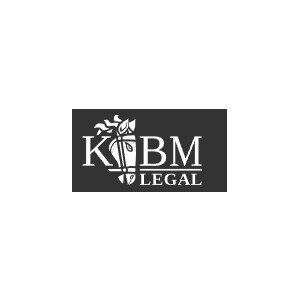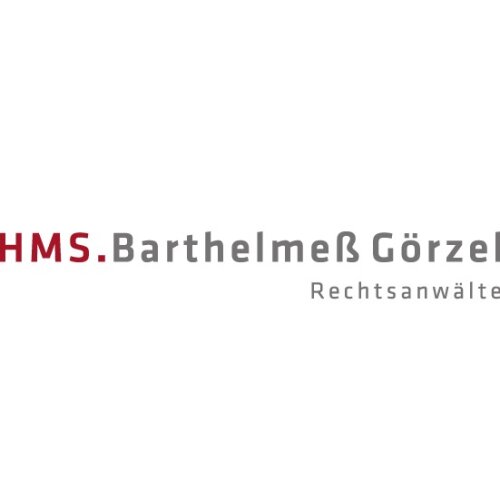Best Art & Cultural Property Law Lawyers in Cologne
Share your needs with us, get contacted by law firms.
Free. Takes 2 min.
List of the best lawyers in Cologne, Germany
About Art & Cultural Property Law in Cologne, Germany
Art & Cultural Property Law in Cologne, Germany, encompasses a broad range of legal issues involving the creation, acquisition, ownership, and distribution of art and cultural artifacts. Given Cologne’s rich history and vibrant cultural scene, these laws play a crucial role in protecting the city's artistic heritage. Typically, they address the protection, transfer, and restitution of cultural property, including items that could be part of museums, private collections, or public spaces.
Why You May Need a Lawyer
There are several situations where you might require legal advice in Art & Cultural Property Law:
- Acquiring or selling art and cultural pieces, ensuring legal compliance and rightful ownership.
- Disputes over the provenance of artwork, especially in cases of inherited art.
- Restitution claims concerning artworks looted or taken during conflicts, such as WWII artifacts.
- Establishing and understanding intellectual property rights related to art.
- Navigating the legal requirements for exhibiting art in public and private venues.
Local Laws Overview
In Cologne, significant aspects of Art & Cultural Property Law include:
- Protection of Cultural Heritage: German law sets strict guidelines on the export and import of cultural property, requiring proper documentation and permissions.
- Provenance Research: Institutions and individuals must conduct diligent provenance checks, especially for artworks with histories tracing back to suspect periods.
- Restitution Laws: Germany has established frameworks for claims related to artworks lost during the Nazi regime, ensuring rightful restitution or compensation.
- Public and Private Collections: Regulations govern the sale, loaning, and exhibition of artworks, emphasizing the maintenance and protection of public interest and historical value.
Frequently Asked Questions
What constitutes cultural property under German law?
Cultural property refers to objects of artistic, historical, or archaeological significance. This includes artworks, manuscripts, antiques, and monuments, among others.
Do I need a certificate to export art from Germany?
Yes, depending on the value and age of the artwork, you may need an export license from the Federal Office of Administration.
How can I verify the authenticity of an artwork?
Verification usually involves provenance research, expert evaluations, and sometimes scientific techniques like carbon dating or material analysis.
What are the laws concerning art restitution in Germany?
Germany adheres to international agreements and maintains specific laws to facilitate the restitution of artworks lost during Nazi Germany and other conflict periods.
How does German copyright law apply to art?
German copyright law protects the rights of the creator, typically for 70 years after their death, covering reproduction, distribution, and public display rights.
Can I display or sell art replicas in Cologne?
Yes, but it must be clearly labeled as a replica. Failure to do so can lead to legal action for misleading practices.
Can I loan art to museums or exhibitions overseas?
Yes, but you need to ensure all customs and legal export/import protocols are met, alongside arrangements for insurance and transport.
Are there tax implications when buying art in Germany?
Yes, art transactions may include VAT and other taxes, and it is essential to consult with a tax advisor for specifics.
How is art inheritance handled legally?
Art inheritance follows German inheritance law, which considers both the testator's will and statutory rights of heirs.
What should I do if my art is stolen?
Report immediately to local authorities and notify databases like Art Loss Register, and consult a lawyer to explore recovery options.
Additional Resources
For more information and assistance, consider the following resources:
- German Federal Office of Administration: Provides guidelines on cultural property export controls.
- Art Loss Register: A database for tracking stolen art.
- German Lost Art Foundation: Offers insights and assistance on looted art and restitution.
- Local Museums and Galleries: Many institutions offer educational resources and workshops on art law and ethics.
Next Steps
If you find yourself in need of legal assistance, consider the following steps:
- Research and select a lawyer specializing in Art & Cultural Property Law who is familiar with Cologne’s legal landscape.
- Prepare all relevant documents and information related to your case, such as provenance records, sales receipts, and correspondence.
- Schedule a consultation to discuss your legal needs, potential strategies, and the costs involved.
- Keep informed about changes and updates in local and international Art & Cultural Property Law that may affect your situation.
Lawzana helps you find the best lawyers and law firms in Cologne through a curated and pre-screened list of qualified legal professionals. Our platform offers rankings and detailed profiles of attorneys and law firms, allowing you to compare based on practice areas, including Art & Cultural Property Law, experience, and client feedback.
Each profile includes a description of the firm's areas of practice, client reviews, team members and partners, year of establishment, spoken languages, office locations, contact information, social media presence, and any published articles or resources. Most firms on our platform speak English and are experienced in both local and international legal matters.
Get a quote from top-rated law firms in Cologne, Germany — quickly, securely, and without unnecessary hassle.
Disclaimer:
The information provided on this page is for general informational purposes only and does not constitute legal advice. While we strive to ensure the accuracy and relevance of the content, legal information may change over time, and interpretations of the law can vary. You should always consult with a qualified legal professional for advice specific to your situation.
We disclaim all liability for actions taken or not taken based on the content of this page. If you believe any information is incorrect or outdated, please contact us, and we will review and update it where appropriate.









